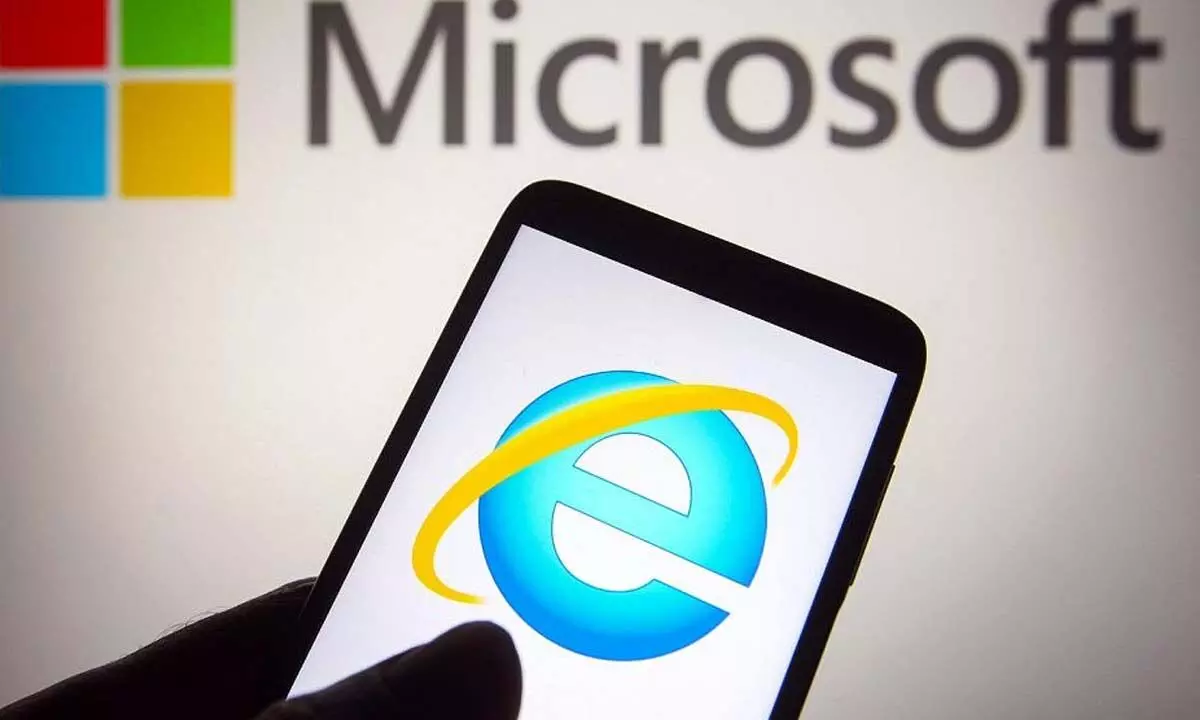Live
- Saif stabbing case: Accused national-level wrestler in B’desh
- Astrologers’ meet on Jan 25, 26
- 40-hour training programme on mediation begins
- HMWSSB, HMDA officials inspect areas in Neopolis, Kokapet
- TTD introduces vada in Annadanam
- Guv to take part in SEC’s National Voters Day celebrations
- TTD EO unveils Devuni Kadapa Brahmotsavam posters
- Mayor Gadwal Vijayalakshmi urges women to join SHGs for empowerment
- No proposal to introduce AI as a separate subject of study
- Urdu job aspirants push for removal of quota cap
Just In
Microsoft ends Internet Explorer on systems running on Windows 10

Microsoft ends Internet Explorer on systems running on Windows 10
Microsoft permanently disabled Internet Explorer on systems running on Windows 10. The company had shared its plan to root out the older browser via a Microsoft Edge update.
Microsoft has pulled the plug on Internet Explorer. Microsoft has permanently disabled Internet Explorer on systems running on Windows 10. The company had shared its plan to root out the older browser via a Microsoft Edge update, which will ban users from accessing Internet Explorer 11 on most of the client versions of Windows 10. Microsoft announced the plan to permanently get rid of Internet Explorer in December 2022.
"The Microsoft Edge update will be delivered to all devices—both commercial and consumer—at the same time, and users will be unable to reverse the change. Additionally, redirection from IE11 to Microsoft Edge will be included as part of all future Microsoft Edge updates," Microsoft said on an FAQ page.
Earlier, Microsoft stated that if an organization has switched to a newer browser already called Microsoft Edge with IE mode, It will not make any difference for them by the end of Internet Explorer. In other words, they can continue using the newer browser without any problem.
However, for those still using IE11, certain visual references, such as icons on the Start menu and taskbar, will be pulled by a Windows security update scheduled for June 13, 2023.
If you got used to seeing those icons, they wouldn't be there anymore after that update. "IE11 visual references, such as the IE11 icons on the Start Menu and taskbar, will be removed by the June 2023 Windows security update ("B" release) scheduled for June 13, 2023," the FAQ page read.
Internet Explorer, or IE, was released in 1995 as part of the Windows 95 OS. It quickly rose to prominence and became the dominant web browser, with a market share of more than 90 percent by the turn of the century. 2000s. However, IE faced increasing competition from rival browsers such as Mozilla Firefox, Google Chrome, and Apple Safari. These browsers offered faster speeds, better security, and an easier-to-use experience. This led to the crash of Intent Explorer.

© 2025 Hyderabad Media House Limited/The Hans India. All rights reserved. Powered by hocalwire.com




